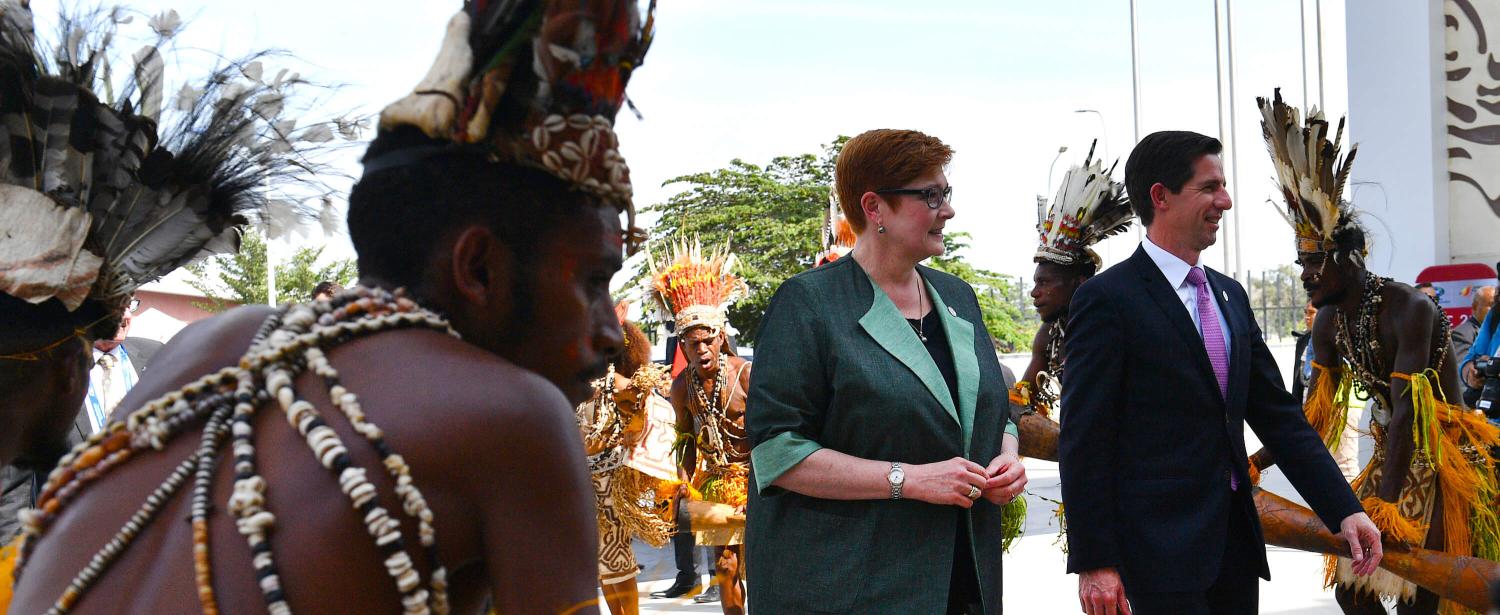The week that was on The Interpreter.
This weekend the eyes of the world (or at least those of us who enjoy analysing the body language of world leaders and predictably bland joint statements) turn to Port Moresby, Papua New Guinea, which plays host to the APEC Leaders’ Summit. Watna Mori contrasts the glitz and glamour of APEC with the state of the PNG economy and the country’s worsening health crisis.
The question to ask now is, What happens after APEC? Will the benefits from APEC cover the costs of hosting it? Will the PNG Government finally prioritise health and education? Will PNG’s revenue and cash-flow burden be lightened? And who gets to keep those Maseratis?
Most observers will be scanning for hints of the political competition underlying the comity and funny shirts at APEC, especially between China and the United States. Merriden Varrall:
The dynamics between the US and China are also affecting how countries in the region interact with each other, and how they view regional and global institutions. The apparent thaw in relations between China and Japan is a good example. Fears over deepening global trade tensions are further encouraging some countries, such as South Korea, Thailand, and Indonesia, to actively consider joining the revamped Trans-Pacific Partnership.
En route to the summit, Japanese Prime Minister Shinzo Abe swung by Darwin for discussions with Australian Prime Minister Scott Morrison on a bilateral Reciprocal Access Agreement. Lauren Richardson:
While both parties stand to benefit greatly from the RAA, there is arguably more hinging on the agreement for Tokyo right now. Ever wary of China’s growing regional influence and assertiveness in the South China Sea, Abe is intent on cementing new security partnerships in the Indo-Pacific. This imperative has been reinforced by the marginalisation of Tokyo in Northeast Asia’s diplomatic efforts to curb Kim Jong-un’s nuclear program; adding salt to this wound has been the central role in this process played by Washington – Tokyo’s long-standing ally.
But APEC is not the only important development in the Pacific this week. Across the Coral Sea, Fiji will hold its second election since 2006, pitting the instigator of the 2006 coup, Prime Minister Frank Bainimarama, against the instigator of the 1987 coups, Sitiveni Rabuka. Jonathan Pryke:
Bainimarama has slowly led his country back towards democracy, comfortably winning the “free and fair” elections in 2014. One reason for the return to elections is that Bainimarama is confident of winning them, and he has quite a lot to be confident of. The Fiji economy is ticking along reasonably well, growing at an average of 3.6% over the past five years, buffeted only by natural disasters.
Australia will (probably) have a US ambassador in situ before the end of President Donald Trump’s first term. Though it was largely drowned out by the din of the midterms, President Trump nominated former Regan White House counsel Arthur Culvahouse to be US ambassador to Australia. Alan Tidwell traces the history of the job:
With the nomination of Culvahouse, the long hiatus for top US representation in Australia might be over, but it leaves begging the question what kind of ambassador will Culvahouse be? US ambassadors do three things – represent US interests, advocate for the Australian-American alliance, and lead. To be successful, an ambassador must excel in at least one these and be competent in the remaining two.
Following the partial rebuke to President Trump in those midterm elections, Michael Fullilove considers the prospect of the president freeing his arms on foreign policy.
Given the likelihood of gridlock in Washington, the president may well get bolder in his foreign policy – Trumpier, if you like – both because he has greater freedom to move abroad and because he thinks foreign wins will help him at home. Certainly, we can now say with some confidence that the United States will not “snap back” to normality.
And Sam Roggeveen asks what it means for Australia if the White House’s strong words about competition with China don’t have a strategy to match:
But there’s another realisation that is yet to dawn: yes, it is becoming clear to Australia’s political leaders that China wants to challenge the US. And they seem to think that means there will be greater rivalry. But what if the US doesn’t want rivalry? What if America’s interests in Asia are not important enough to justify the enormous effort of competing with China to maintain regional leadership?
Finally, as British politics self-immolates over the latest Brexit developments, listen to two panel discussions hosted this week that explain the state of play.
